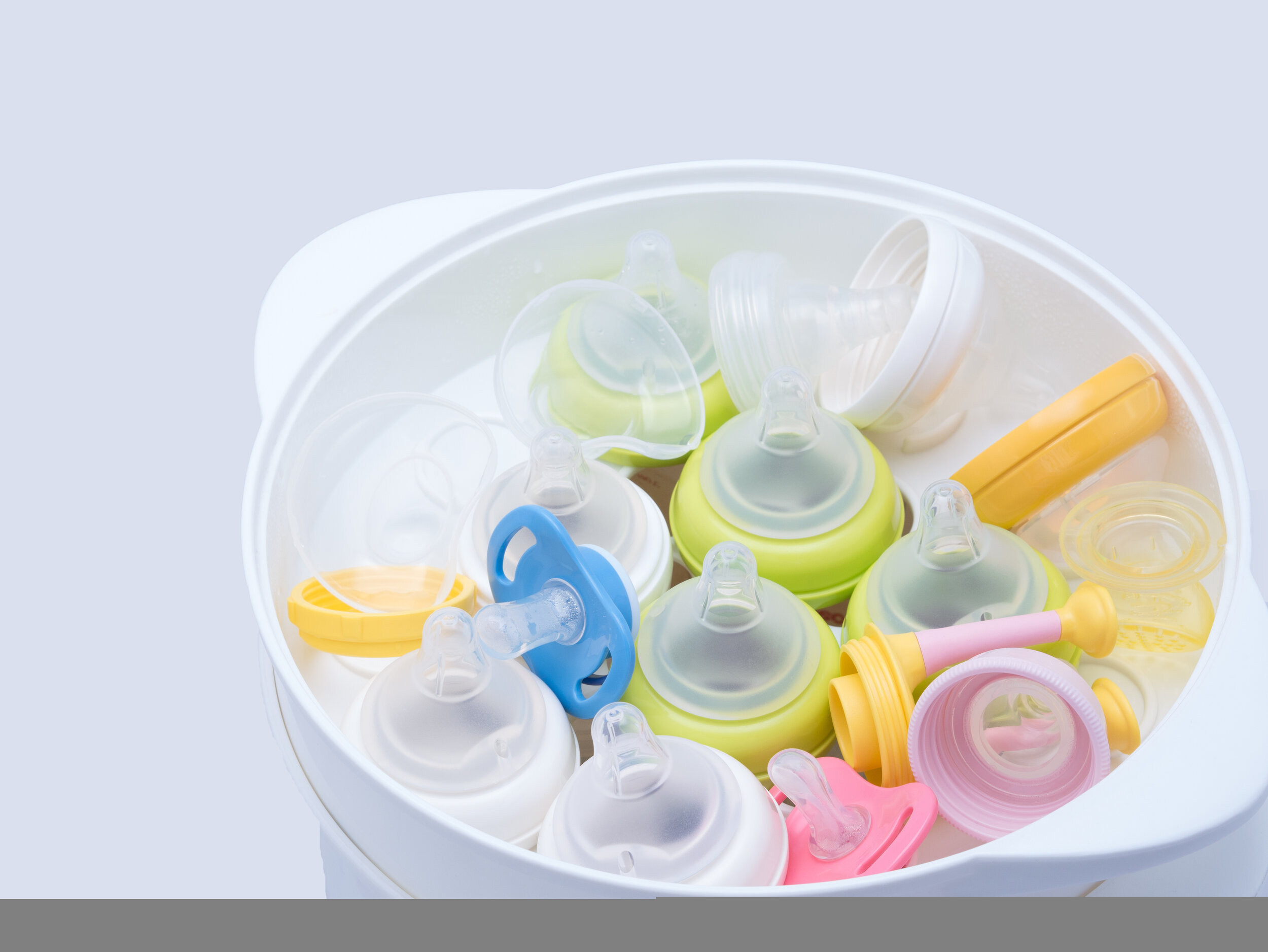
What formula to choose?
Three things we wish we knew when buying formula for the first time:
First infant formula is the only formula your baby needs from birth until they wean onto cow’s milk at 1 year old
The composition (ingredients) in all first infant formula brands are regulated by law.. This means that all brands are nutritionally equivalent so the least expensive brand is just as nutritious for your baby as the most expensive brand.
Because of the similarity in composition, it’s absolutely fine to switch formula brands for whatever reason.
Whilst we know that some mums will opt for formula milk from the get go, for the majority of women, formula feeding is often unplanned. The decision to introduce formula is not usually made at a time when you can have a conversation with an infant feeding expert, if you are lucky enough to have one! We too have googled in the middle of the night, and are aware that most of us are getting critical information about formula feeding often comes from our peers and online. So we are here to give you the straight up, unbiased facts on formulas to help you decide what is right for you and your baby.
Bottle feeding basics
What it’s made of
All infant formula milk in the UK is highly regulated. First infant formula milks, the ones you use from birth, are made up of the same nutritional components to make them equally suitable for your baby. That means you can feed your baby any first infant formula milk, and your baby will be getting all the vitamins, minerals, fats, proteins that is required for a healthy baby.
If a formula company discovers a new ingredient that benefits your baby, then by law, they must disclose this, and this ingredient must then be added to ALL first infant formula milks. What this means is, where formula companies advertise a “special component” of their milk, let’s say they claim their formula has the most advanced oligosaccharides, then there is no evidence that this special additive will benefit or harm your baby in any way. It does nothing except hit you in the pocket.
To make it clear; All first infant formula milks have the same nutrition and the only difference for your baby will be how much money you are spending on formula.
Go for the number one
First infant formula milk is suitable from birth to 12 months of age. This usually has a large number 1 on the tub. At 12 months, your baby can switch to cows milk, or an equivalent. 500mls of first infant formula contains the vitamin and mineral intake required for your baby for a day. If your baby is having less than 500mls a day, they may require an additional vitamin D supplement. Speak to your health visitor if you have any concerns.
Milk will make up the majority of your babies diet from birth to 12 months. Whilst foods are often introduced at six months, at first at least, this will not be replacing milk feeds.
The amount babies drink is variable. Some will snack throughout the day and others will have discrete feeds. For more information on bottle feeding tips see here.
There is no harm in switching between brands of formula milks. Under the age of six months, babies don’t have fully developed taste buds, but around six months they may start to show a preference. However, as all first infant formula milks are nutritionally equal, there is no harm in trying different brands and switching between brands.
But…. you haven’t said which brand to go with….?
It is completely up to you which formula brand you start with, as all brands provide the same nutrition. We suggest starting with the cheapest one you can buy, because it will be giving your baby everything they need and you will have money left over to put towards a well deserved coffee… nearly everything a mum needs.
Follow on
Follow on milks are suitable from the age of six months to 12 months. They are not suitable for babies under six months of age. This is because they are not as regulated as first infant formula milks and contain different amounts of sugars and minerals. Most importantly, they contain higher levels of iron than first infant formula milks, which are harmful for babies under six months of age. As follow on milks are not as regulated by the law, they can be advertised, and sold on promotion in the UK. This can make follow on milks cheaper than first infant formula milks. If you are struggling to afford first infant formula milk for your baby please speak to your health visitor and look at our resources.
Specialist milks
There are a mountain of specialist infant milks on the market. They range from ones you can buy off the shelf, ones you can buy over a pharmacy counter, and ones you can only get on prescription.
Pharmacy milks
If your baby has been diagnosed by a healthcare professional with an allergy, or a condition that requires a specialist milk, then they will be prescribed this. These milks have gone through additional processing, and had certain proteins broken down even further, called hydrolysed milks. If you are concerned your baby has an allergy, such as cows milk protein allergy or lactose intolerance, then speak to a health care professional. There is no evidence that hydrolysation helps with other conditions such as constipation or colic.
Shelf milks
These are the milks that companies can charge a fortune for, and parents will seek out in the hope they will help with certain issues such as colic, constantly hungry baby, reflux, or lactose intolerance.
The witching hour (or for some 24 hours) is that time in the first few months of your babies life, where your baby just seems to cry and want to be held and want to be fed. Sometimes this is referred to as colic. In our experience, all babies have a witching hour, and pinpointing what is wrong, is not easy. If you are worried about your baby having a medical condition, please seek help from your health care professional. Both reflux and lactose intolerance are medical conditions that can be treated, and if you have concerns you can speak to your health visitor or GP.
There is no evidence that specialist formulas will help your baby settle in treating colic or reflux symptoms, or keeping your baby fuller for longer. If these claims did actually work, the internet would explode and shelves would be empty as every formula feeding parent would be scrabbling to get their hands on the product that saves their sanity. But, alas, the only thing that will help with colic, is time, your baby will grow out of it. Babies are generally hungry all the time because they double their size in less than a year.
Our advice would be, don’t waste your money and to reiterate, all first infant formulas have the same nutritional equivalence, if an ingredient had been found to benefit babies, it would by law, be added to all first infant formula milks.
Growing up
Growing up milk is targeted at toddlers, babies over the age of 12 months. As we have already said, your baby can switch to cows milk or an equivalent at age 12 months. There is no need for growing up milk. Your babies diet should be providing all the nutrients your baby needs through food by now, which is an important part of your babies development. The NHS recommend milk as a drink to be limited to 300mls a day from the age of 12 months. This is to ensure they are not filling up on milk, and having enough space for different foods. If you are struggling with accessing a variety of foods then speak to your health visitor and look at our resources.
Children between the ages of 1 year and 4 years should be given a vitamin D supplement of 10 micrograms daily, however they are fed. Speak to your health visitor or family nurse to find out more.
Powder vs RTF
All first infant formula milks are nutritionally the same, so powdered and ready to feed have the same ingredients needed for a healthy baby.
Benefits of Powdered Formula
Costs less per feed than ready to feed
Has a long shelf life even once a tub has been opened
Readily available at most shops
Can be used with formula prep machines (not recommended by the NHS)
Draw backs of Powdered Formula
It may harbour bacteria, so it needs to be heated to over 70 degrees then cooled before being fed to your baby
You have to make it up yourself - sounds simple - but counting scoops in the middle of the night with a screaming baby is sometimes a challenge
Benefits of Ready to Feed
It is convenient: it saves time, it is as they say…. ready to feed
It is sterile that means it doesn’t need heating, unless you want to heat it
Draw backs of Ready to Feed
Once opened, it must be kept in a fridge and used within 24 hours
It is the most expensive preparation per feed
Ultimately this isn’t an all your eggs in one basket type situation. You can use a combination of different preparations for different occasions and you can use a combination of different brands, depending on what is available to you. You just need to make sure that the milk you are using is:
Suitable for the age of your baby. If in doubt, stick with first infant formula as it is suitable for all babies (unless otherwise told by a health care professional).
Prepared following the manufacturers instructions.
Happy Feeding!
